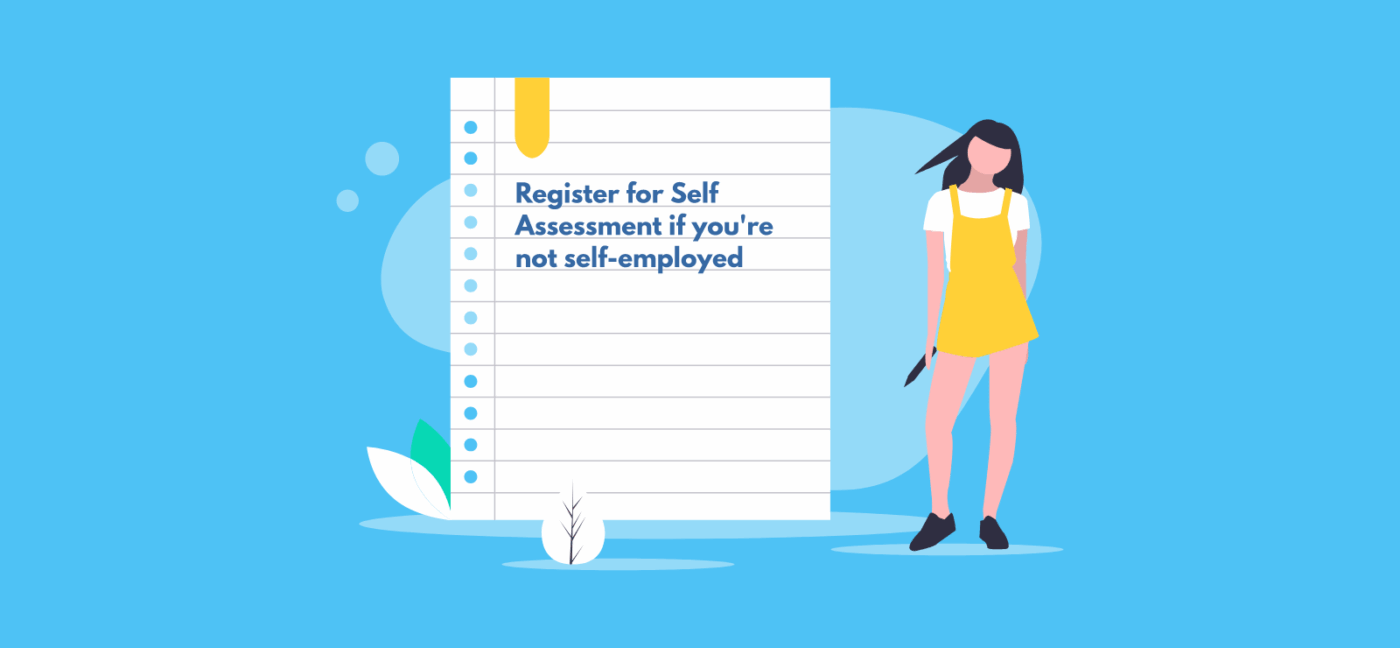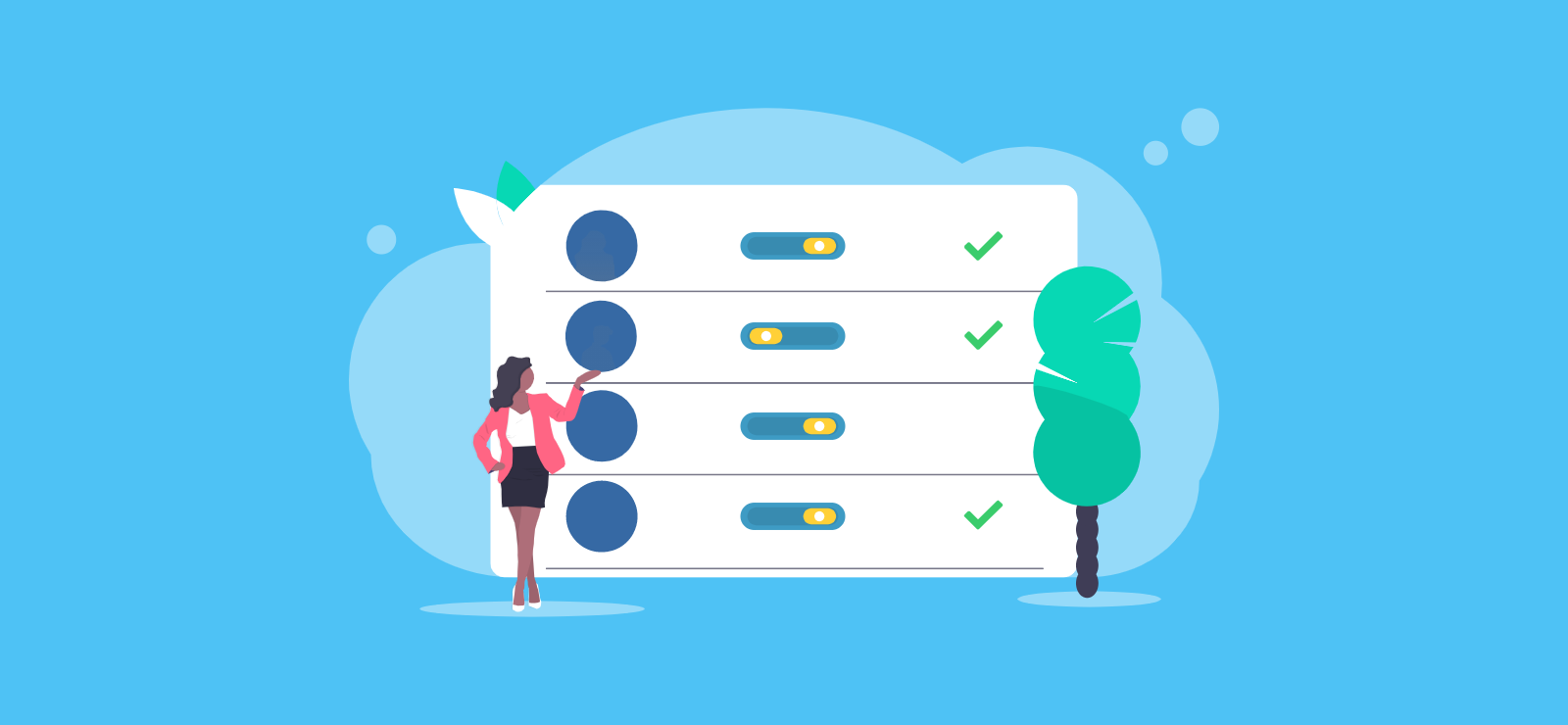

Do I Need to Register for Self Assessment if I’m Not Self-Employed?
Most people don’t need to register for Self Assessment unless they’re self-employed, but there are exceptions. We’ll use this article to explain who does (and doesn’t) need to register for Self Assessment tax returns.
Who needs to submit a Self Assessment if they’re not self-employed?
HMRC need to know about any income you might earn to ensure you pay the right amount of tax. Not all earnings come from an employer or self-employed work though, so you might need to register for Self Assessment for other reasons too. This might be the case if you:
- Need to pay tax because you receive income from land or property which is in the UK
- Receive taxable foreign income
- Receive more than £10,000 from dividends, savings, or investments in a tax year
- Receive any taxable income which hasn’t been taxed, and it can’t be collected through your tax code
- Need to pay the High Income Child Benefit Charge (HICBC) because you receive Child Benefit and you or your partner have an individual income which is more than £60,000, and you don’t want to use the digital service to have HICBC collected through your tax code by your employer.
The requirement to submit a tax return purely because you earn more than £150,000 per year has been removed for 2024/25.
How do I register for Self Assessment if I’m not self-employed?
The process of registering for Self Assessment depends on whether you’re self-employed or not. If you’re not self-employed, you can either complete and submit a SA1 form by post, or register online (which tends to be a lot faster).
When should I register?
If you didn’t send a tax return last year, you’ll need to register for Self Assessment by 5th October following the end of the tax year that you need to submit a return for. Your first tax return will then be due by 31st January the following calendar year if you submit online. The deadline is 31st October the same year if you submit a paper return.
For example, if you need to submit a tax return for the 2024/25 tax year, then you must sign up for Self Assessment before 5th October 2025.
What happens after I register for Self Assessment?
HMRC will send you a Unique Taxpayer Reference (UTR). If you’re a company director, this UTR number will be different to the one you received for your limited company – so don’t mix them up!
You will also receive reminders when your tax return is due. If your situation changes and you no longer need to submit, you should let HMRC know as soon as possible.
When you first sign up for HMRC’s online services (which you’ll use to complete your Self Assessment tax return) you’ll receive an activation code. This can take a few weeks to arrive, so be sure to register in plenty of time to submit your return.
Learn more about how our online accountants can help. Call 020 3355 4047, or get an instant online quote.
Want to learn more?
Subscribe to our newsletter to get accounting tips like this right to your inbox

Read more posts...

What Type of Legal Structure Should I Choose When I Start a Business?
13th February 2026The structure you choose when you start a business affects how the business operates, the amount of tax you pay, how you…
Read More
Estate Planning for Family Investment Companies
12th February 2026If you want to pass your wealth and assets on to the next generation, a Family Investment Company (FIC) could be an…
Read More
Do Influencers Pay Tax?
11th February 2026The occupation of ‘influencer’ or ‘content creator‘ is more popular than ever, but there isn’t much information out there on how to…
Read MoreConfirm Transactions
The number of monthly transactions you have entered based on your turnover seem high. A transaction is one bookkeeping entry such as a sale, purchase, payment or receipt. Are you sure this is correct?
Please contact our sales team if you’re unsure
VAT Returns
It is unlikely you will need this service, unless you are voluntarily registered for VAT.
Are you sure this is correct?
Call us on 020 3355 4047 if you’re not sure.
MTD IT Quarterly Updates
Your final, end of year MTD Income Tax submission is included in your fee.
You can submit the quarterly updates yourself using Pandle, or alternative bookkeeping software (which we recommend).
However, if you would prefer us to submit these updates, there is an additional fee of £35.00 per month.
Call us on 020 3355 4047 if you’re not sure.
Bookkeeping
You will receive our bookkeeping software Pandle for free, as part of your package.
You can use this to complete your own bookkeeping, or we can provide a quote to complete your bookkeeping for you.
Please select and option below:
Call us on 020 3355 4047 if you’re not sure.


I note that in the “reasons why you may need a return” list it states “if you become a director of a company”. My understanding of the legislation is that it is not a mandatory requirement to inform HMRC when a person becomes a director of a company, providing of course none of the other items shown in the list are applicable. HMRC may however request that an SA1 is completed. In most circumstances, unless the person is a director of a company with whom he is not an employee, directors are paid through the payroll and subject to PAYE/NI… Read more »